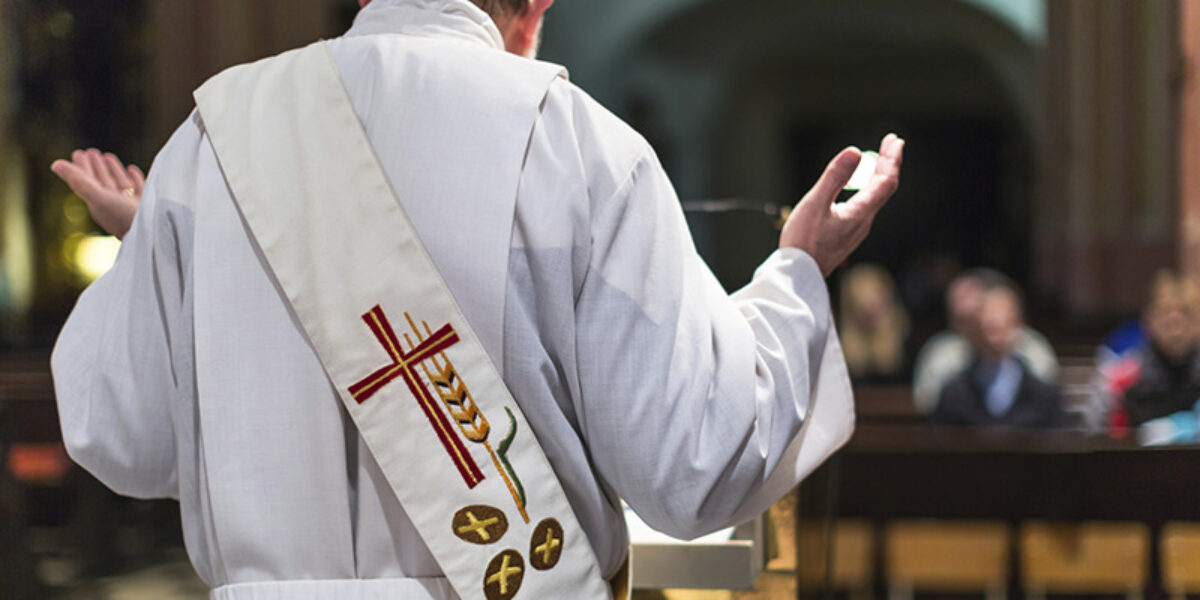Our Philadelphia office has been buzzing lately with activity surrounding the World Meeting of Families and the Pope’s visit. Working closely with Roman Catholic writers, we’ve tried to build on this unique opportunity to promote Scripture engagement among a massive audience, many of whom seem newly excited about spiritual things. We asked one of these writers, Sarah Christmyer, how Protestants and Catholics interact with Scripture differently. Her answer appears below.
Even if you minister in a Protestant congregation, you may have opportunities to share the Scriptures with Catholics in your community, and interest in Pope Francis may spark new spiritual conversations as well. The insights below may help you bridge a divide.
the blog editors
Several years after I became Catholic, I was using Psalm 1 to teach the steps of
lectio divina—an ancient method of prayerful Bible reading. We began discussing the image of the blessed man as a tree planted by rivers of water, roots plunged into the stream. Imagine my surprise when not one person saw that as an image of Scripture meditation. To the Catholics in the room, it described someone who was plugged into God through prayer, through faithful attendance at church, or through obedience to what they read or heard.
“What’s the deal?” I asked the priest. “Why don’t they see the Bible in that passage?”
“Catholics are people of the Word,” he explained to me. “But that doesn’t mean people of the Book. The Bible is the Word of God, but the Word comes to us in other ways as well.”
Protestants are people of the Word, too, but there’s a difference in emphasis. When Protestants hear “Word of God,” most think
Bible first. Catholics tend to think of the “Word” as Jesus or as “divine revelation,” of which Holy Scripture is a part. Most Catholics’ main contact with the written Word comes as the spoken Word at Mass, where it’s only part of the way they encounter and receive Jesus (the other way being through the Eucharist). Perhaps that’s why they’re more likely to say “Scripture” than “Bible” when they speak of the written Word. They experience it more as something they hear than as something they read from a book themselves.
Most Catholics today would agree that they need to get to know their Bibles better. But the Scripture they hear at Mass is no little thing: Every year, in the rhythm of the liturgical seasons, Catholics hear the entire gospel story while they focus frequently in other ways on the life and work of Christ. Every three years, nearly the entire Bible is read out loud in the Mass readings.
Every Sunday, there are four readings: first from the Old Testament, then a Psalm, a reading from one of Paul’s letters or somewhere else in the New Testament, then finally the Gospel. The readings are carefully chosen so that the Old Testament connects with the Gospel, with the Psalm response tying them together. This beautifully illuminates the plan of salvation, while the New Testament reading helps us live our faith.
This explains why Catholics don’t traditionally learn Bible references. They learn by
hearing stories and parables and other biblical teaching. So they may be able to tell you what Jesus said to Bartimaeus, but not that you can find it in Mark 10. Sometimes they know just the pieces they hear, and not so much what they mean. But I’ve found that when Catholics learn the underlying story of salvation, and the way the people and places and events of the Bible are tied together by God’s plan, the Mass readings come alive for them—and they are more likely to see not only God’s story but how it connects with their own lives of faith.
The most important thing I’ve come to know about Catholics over twenty-plus years of being one, is that Catholics are hungry for more of God’s Word—whatever you want to call it. Pope Francis, following Popes John Paul II and Benedict XVI, has encouraged personal Bible reading. Many Catholics are listening. At this World Meeting of Families, there has been a renewed call to gather as families around God’s Word and listen to him. I pray that this will become a source of connection, a new way for Catholics and Protestants to share their common faith in the Lord Jesus Christ!





